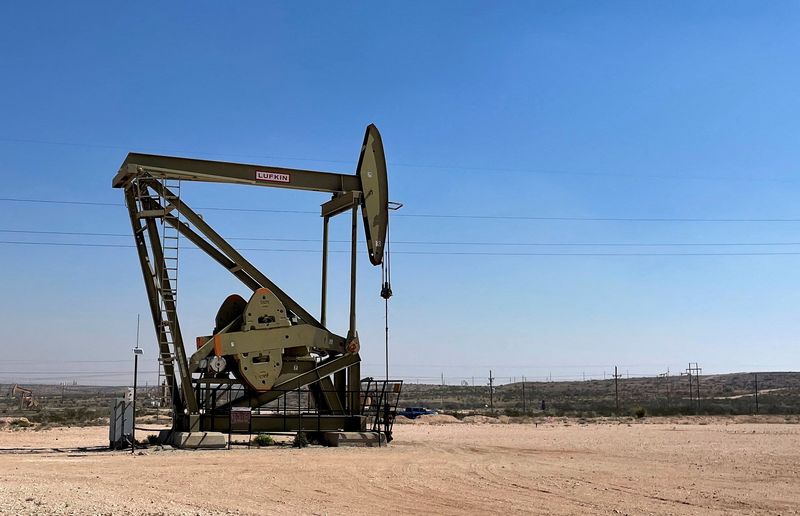
By Scott DiSavino
NEW YORK (Reuters) -Oil prices held near a one-week high on Wednesday on worries about supply disruptions in Russia and the U.S., while the market awaited clarity on sanctions as Washington has been trying to broker a deal to end the war in Ukraine.
Brent futures rose 16 cents, or 0.2%, to $76.00 a barrel by 1:17 p.m. EST (1817 GMT). U.S. West Texas Intermediate (WTI) crude rose 36 cents, or 0.5%, to $72.21.
Both benchmarks were headed for their highest closes since February 11.
“The market is trying to make up its mind on three bullish drivers: Russia, Iran and OPEC,” said BNP Paribas commodities strategist Aldo Spanjer. “People are trying to figure out the impact of announced and actual sanctions.”
Drone attacks on Russian oil infrastructure are reducing supplies.
Russia said Caspian Pipeline Consortium (CPC) oil flows, a major route for crude exports from Kazakhstan, were reduced by 30-40% on Tuesday after a Ukrainian drone attack on a pumping station. A 30% cut would equate to the loss of 380,000 barrels per day (bpd) of market supply, Reuters calculations show.
Russian President Vladimir Putin suggested the CPC attack might have been coordinated with Ukraine’s Western allies.
In the U.S., cold weather threatened oil supply, with the North Dakota Pipeline Authority estimating production in the state would decline by as much as 150,000 bpd.
“The psychologically important $70 level (for oil prices) appears to have held firm, aided by the Ukrainian drone attack on the Russian oil pumping station and fears that cold weather in the U.S. may curtail supply,” said IG market analyst Tony Sycamore.
“On top of that there is some speculation that OPEC+ may decide to delay its planned supply increase in April,” Sycamore added, referring to the Organization of the Petroleum Exporting Countries (OPEC) and allies like Russia and Kazakhstan.
BNP’s Spanjer expects OPEC to extend its output cuts.
U.S. President Donald Trump denounced Ukrainian President Volodymyr Zelenskiy as “a dictator without elections” and said he should move fast to secure a peace.
However likely a U.S.-brokered peace deal between Russia and Ukraine may be, analysts at Goldman Sachs said any associated easing in sanctions against Russia is unlikely to bring a significant increase in oil flows.
“We believe that Russian crude oil production is constrained by its OPEC+ 9 million bpd production target rather than current sanctions, which are affecting the destination but not the volume of oil exports,” Goldman Sachs said in a report.


